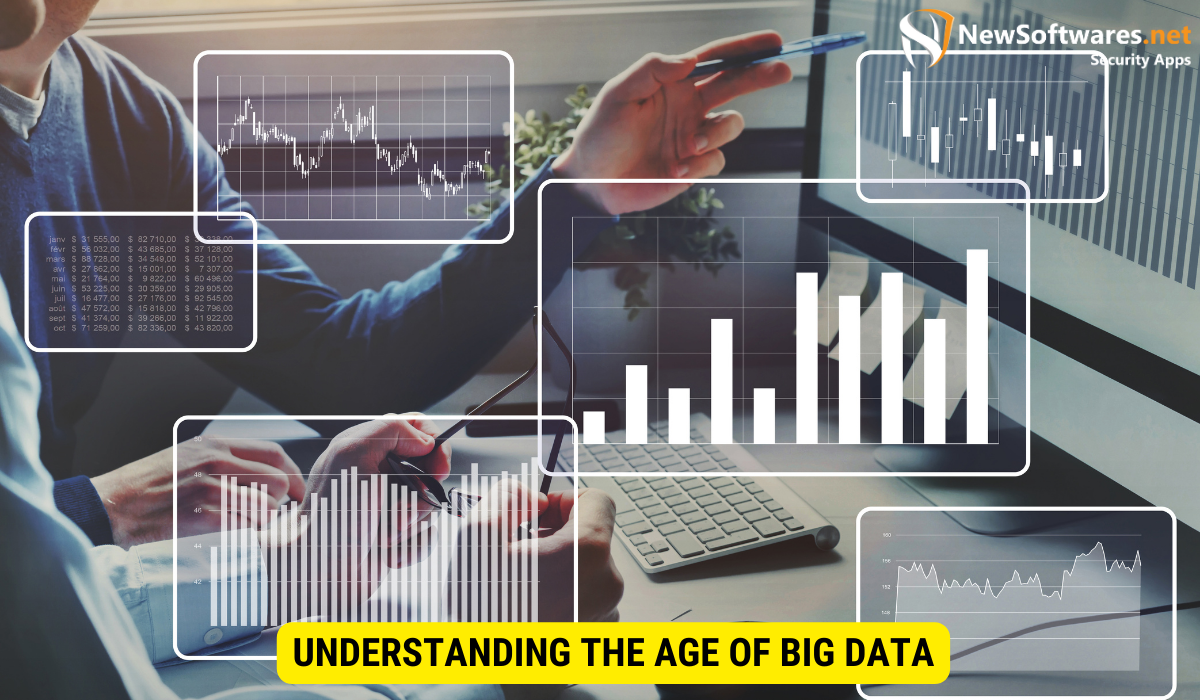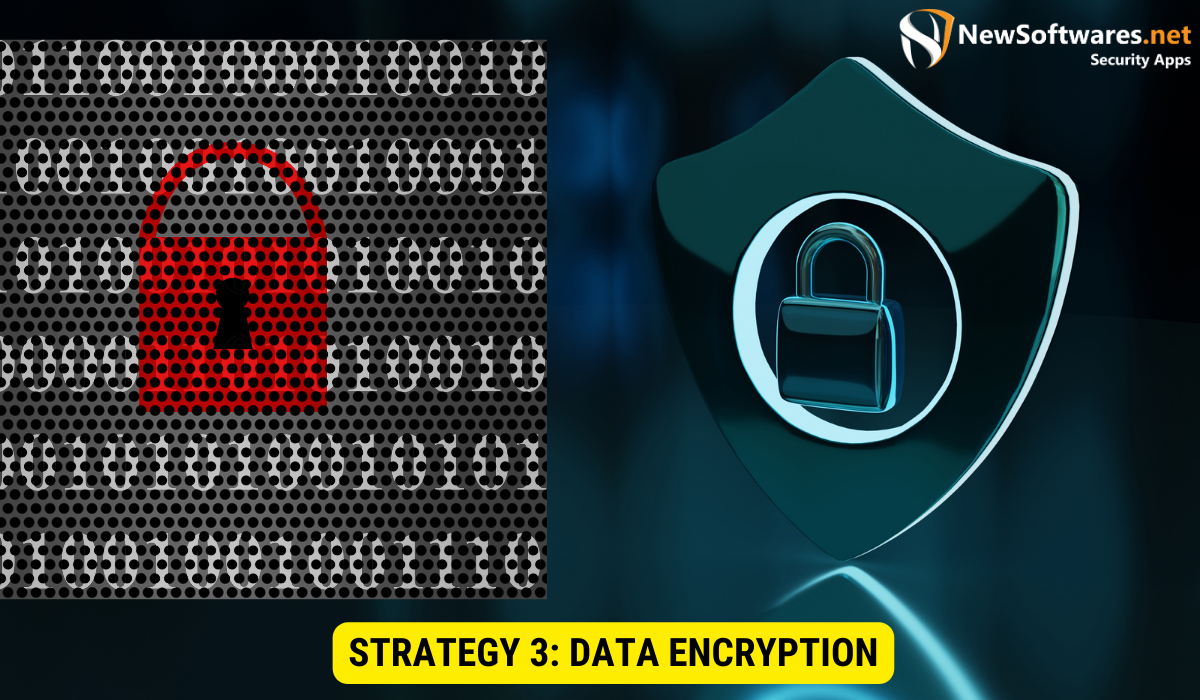The top 5 effective strategies for protecting your privacy in the age of big data include utilizing privacy tools, practicing secure browsing habits, and implementing data encryption to safeguard your personal information from unauthorized access and data breaches.
Understanding the Age of Big Data

With the rapid advancement of technology, we find ourselves in the age of big data. This refers to the vast amount of digital information that is generated and collected every day. From social media posts and online purchases to healthcare records and financial transactions, our lives are increasingly intertwined with data.
But what exactly is big data? Big data encompasses not only the sheer volume of information but also its variety and velocity. It includes structured data from databases, unstructured data from social media and emails, as well as real-time data from sensors and devices. This massive amount of data holds immense potential for organizations in terms of insights and decision-making.
Imagine a world where every action, every click, and every interaction is recorded and analyzed. This is the reality of big data. Companies can gain a deep understanding of consumer behavior, preferences, and trends by analyzing the vast amount of data they collect. This information can then be used to tailor products and services, improve customer experiences, and drive business growth.
Defining Big Data
Big data is not just about the size of the data sets, but also about the complexity and variety of the information. Structured data, such as customer profiles and transaction records, is relatively easy to analyze as it is organized and follows a predefined format. On the other hand, unstructured data, like social media posts and emails, presents a greater challenge. This type of data does not fit neatly into traditional databases and requires advanced analytics techniques to extract meaningful insights.
Furthermore, big data is not static. It is constantly being generated and updated in real-time. For example, sensors embedded in smart devices and machinery collect data on temperature, pressure, and performance, providing valuable insights for predictive maintenance and optimization. This velocity of data adds another layer of complexity to the big data landscape.
How Big Data Impacts Privacy
While big data offers numerous benefits, it also poses significant challenges concerning privacy protection. The collection and analysis of vast amounts of personal data can lead to a loss of privacy. Companies can track our online activities, target us with personalized ads, and even predict our future behavior.
Consider the scenario where you search for a specific product online, and suddenly, advertisements related to that product start appearing on every website you visit. This is not a coincidence but rather a result of big data analysis. Companies collect and analyze your browsing history, search queries, and social media interactions to create targeted advertising campaigns.
Moreover, big data analytics can go beyond targeted advertising. It can be used to predict individual behavior, such as creditworthiness or health risks, based on patterns and correlations found in the data. While this can have positive implications, such as personalized healthcare recommendations, it also raises concerns about discrimination and unfair treatment.
It is crucial to understand the impact of big data on our privacy and take steps to protect ourselves. This includes being aware of the data we share online, using privacy settings on social media platforms, and being cautious about the information we provide to companies. Additionally, policymakers and regulators play a vital role in ensuring that appropriate safeguards are in place to protect individuals’ privacy rights in the age of big data.
The Importance of Privacy Protection
Protecting our privacy is essential in this digital age. Our personal information is valuable and should be safeguarded from unauthorized access and misuse.
In today’s interconnected world, where technology has become an integral part of our lives, privacy protection has become more crucial than ever. With the vast amount of personal information we share online, it is imperative to understand the value of safeguarding our data.
The Value of Personal Information
Our personal information, such as our name, address, social security number, and credit card details, can be highly valuable to cybercriminals. They can sell this information on the dark web or use it for identity theft and fraud. Privacy protection helps prevent such incidents and ensures the security of our sensitive data.
Imagine the consequences of someone gaining access to your credit card details. They could make unauthorized purchases, leaving you with a hefty bill and the hassle of disputing fraudulent charges. Privacy protection acts as a shield, safeguarding us from these potential financial losses and protecting our hard-earned money.
Moreover, our personal information is not limited to financial details alone. It encompasses a wide range of data, including our health records, browsing history, and even our social media activities. This information can be exploited by malicious individuals to manipulate and control us. Privacy protection ensures that our personal lives remain private, shielding us from unwanted scrutiny and manipulation.
Potential Risks of Data Breaches
Data breaches occur when unauthorized individuals gain access to sensitive personal information. These breaches can lead to significant harm, including financial loss, reputational damage, and emotional distress. Privacy protection measures reduce the risk of data breaches and minimize their potential impact.
Consider the aftermath of a data breach. Apart from the immediate financial implications, such incidents can also tarnish an individual’s reputation. Imagine waking up one day to find that your personal emails, private messages, or intimate photos have been leaked online for the world to see. The emotional distress caused by such an invasion of privacy can be devastating.
Furthermore, data breaches can have severe consequences for businesses as well. When customer data is compromised, companies face not only financial losses but also a loss of trust from their customers. Privacy protection measures, such as encryption and secure data storage, play a crucial role in maintaining customer trust and ensuring the long-term success of businesses.
By implementing robust privacy protection measures, individuals and organizations can mitigate the risks associated with data breaches. These measures include strong passwords, two-factor authentication, regular software updates, and employee training on data security best practices.
In conclusion, privacy protection is of utmost importance in today’s digital landscape. It safeguards our personal information, prevents unauthorized access, and minimizes the potential risks and consequences of data breaches. By prioritizing privacy, we can enjoy the benefits of technology while maintaining control over our personal lives and data.
Strategy 1: Utilizing Privacy Tools
One effective strategy for protecting privacy in the age of big data is to utilize privacy tools that enhance your online security and anonymity.
Choosing the Right Privacy Tools
There are numerous privacy tools available, such as virtual private networks (VPNs), password managers, and encrypted messaging apps. Research and choose the tools that best fit your specific privacy needs. Ensure that they have robust security features and positive user reviews.
Maintaining Anonymity Online
Anonymity plays a crucial role in protecting your privacy. When interacting online, consider using pseudonyms or alternative email addresses. Avoid sharing unnecessary personal information on social media platforms and be cautious about the data you provide to websites and online services.
Strategy 2: Secure Browsing Practices
Secure browsing practices are essential to protect your privacy while using the internet.
Understanding Cookies and Trackers
Cookies are small files that websites store on your computer to remember your preferences and track your online activities. While some cookies are necessary, others can be used for targeted advertising or even third-party data collection. Configure your browser settings to limit cookie tracking or consider using browser extensions that block cookies and trackers.
Safe Browsing Habits
Developing safe browsing habits is crucial for protecting your privacy. Avoid clicking on suspicious links or downloading files from untrusted sources. Regularly update your operating system and applications to patch security vulnerabilities. Be vigilant about phishing attempts and make sure to secure your home network with a strong password and encryption.
Strategy 3: Data Encryption

Data encryption is an effective way to protect your privacy, ensuring that your sensitive information remains secure even if it is intercepted.
What is Data Encryption?
Data encryption involves converting information into a code that can only be deciphered with the corresponding decryption key. This prevents unauthorized access to sensitive data, as the encrypted information is essentially unreadable without the proper key.
Encrypting Your Digital Footprint
You can encrypt your digital footprint by using encrypted messaging apps, enabling SSL/TLS encryption on websites, and securing your Wi-Fi network with WPA2 encryption. Additionally, consider using full-disk encryption on your devices to protect all stored data.
Key Takeaways
- Understanding the age of big data is crucial for privacy protection.
- Protecting your privacy is important to safeguard personal information and mitigate risks.
- Utilize privacy tools to enhance security and maintain anonymity online.
- Implement secure browsing practices to prevent unauthorized tracking and data collection.
- Data encryption is an effective strategy to keep your sensitive information secure.
Frequently Asked Questions
Why is privacy protection important in the age of big data?
Privacy protection is crucial in the age of big data because the vast amount of personal information collected and analyzed poses significant risks to individuals. With big data analytics, companies can track and predict our behavior, leading to concerns about surveillance, targeted advertising, and potential discrimination. Protecting privacy ensures control over our personal data, prevents unauthorized access, and mitigates these risks.
What are some common privacy tools to enhance online security?
Common privacy tools for enhancing online security include:
- Virtual Private Networks (VPNs) to encrypt your internet connection and hide your IP address.
- Password managers for securely storing and generating strong, unique passwords.
- Encrypted messaging apps like Signal and WhatsApp for private communication.
- Browser extensions that block cookies and trackers, such as uBlock Origin or Privacy Badger.
- Secure email services like ProtonMail that offer end-to-end encryption.
How can I maintain anonymity online?
To maintain anonymity online:
- Use pseudonyms or alternate email addresses for online accounts.
- Limit the personal information shared on social media platforms.
- Avoid unnecessary data sharing with websites and online services.
- Utilize VPNs to mask your IP address and location.
- Practice caution when interacting online, refraining from revealing sensitive details.
What are cookies and how do they impact privacy?
Cookies are small files that websites store on your device to remember your preferences and track your online activities. While some cookies are benign, others can be used for tracking and targeted advertising. They impact privacy by allowing websites and advertisers to collect data about your online behavior, potentially leading to personalized ads and privacy invasion. It’s important to manage cookie settings in your browser and use privacy tools to limit their impact.
Why should I encrypt my digital footprint?
Encrypting your digital footprint is essential to protect sensitive information from unauthorized access. Encryption converts data into a code that can only be deciphered with the proper decryption key, making it unreadable to unauthorized individuals or cybercriminals. Encrypting your emails, messages, and stored data ensures that even if your digital footprint is intercepted, it remains secure, safeguarding your personal and sensitive information from data breaches and privacy breaches.
Conclusion
Protecting your privacy in the age of big data is vital to safeguard your personal information and mitigate the risks associated with data breaches and unauthorized access. By understanding the impact of big data, recognizing the importance of privacy protection, and implementing effective strategies such as utilizing privacy tools, practicing secure browsing habits, and embracing data encryption, you can take control of your privacy and navigate the digital landscape with confidence.
